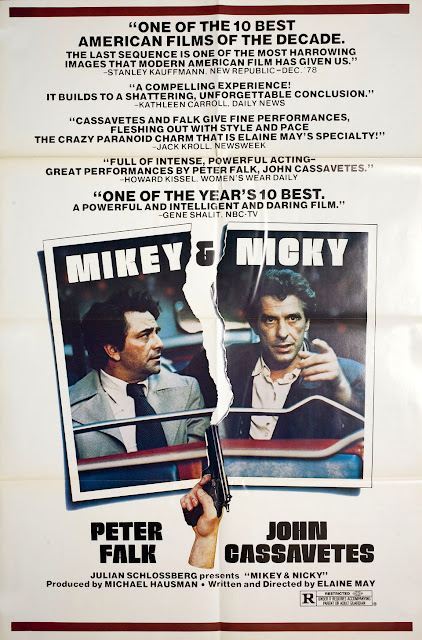☆ ☆ ☆ ☆ ½
Come and See (1985) – E. Klimov
After watching Shoah
(1985; a 9-hour documentary where Holocaust survivors are interviewed) earlier
this year, it is hard to imagine a more horrific portrayal of wartime evil –
but Come And See (also 1985; a fictional account of a real atrocity during WWII
in modern-day Belarus) comes close. We begin, as many war movies do, with
wet-behind-the-ears Flyora (Aleksey Kravchenko), aged 14 or so, eager to join
the partisans and fight against the invading German army. I think director Elem Klimov may have been
luring viewers in, counting on their expectations that his film would be true
to the cliché that sees boys grow into men as a result of the challenges of war
(but which really gives audiences a thrilling action-adventure story rather
than any “real” glimpse of slaughter). So, we see Flyora left behind as the
partisans march out, his hopes dashed – he meets a young girl and they dally
together before the bombing starts and he is shellshocked. They return to his
village and everyone is gone (she sees what he does not see – they have been
murdered). From this point on, as the pair move on to a refugee camp and he
joins a small party on an expedition to gather supplies, we gradually witness
one horror after another, often portrayed in a surreal perhaps psychedelic fashion
(as when we see things from Flyora’s deafened/shellshocked perspective). Klimov’s
goal becomes clear – this is a portrayal of trauma, not heroism. As the
anecdotes accumulate, chaos begins to mount and the German army appears as an
immoral circus, viciously and wickedly enacting war crimes that explicitly echo
Shoah’s descriptions (the innocent are killed). These scenes are relentless and
there is no relief (even as the partisans strike back) – until the final
unbelievable “pure cinema” moments that ask, implicitly, whether this could
have all been avoided. Not for the faint of heart – a terrifying depiction of
the evil that humans can do.


